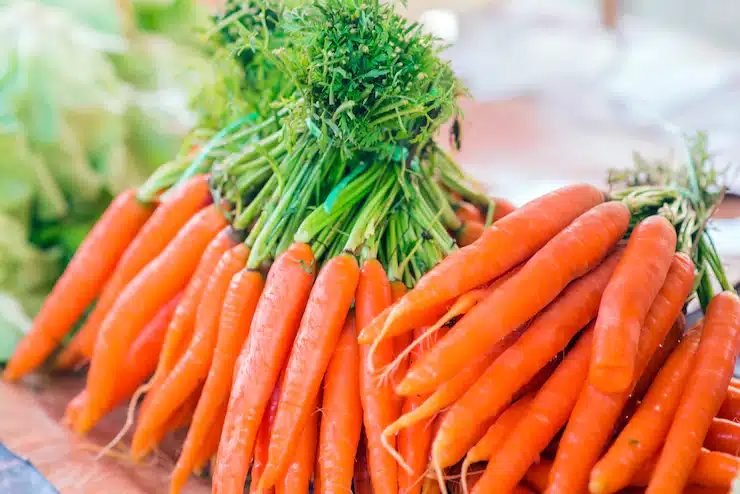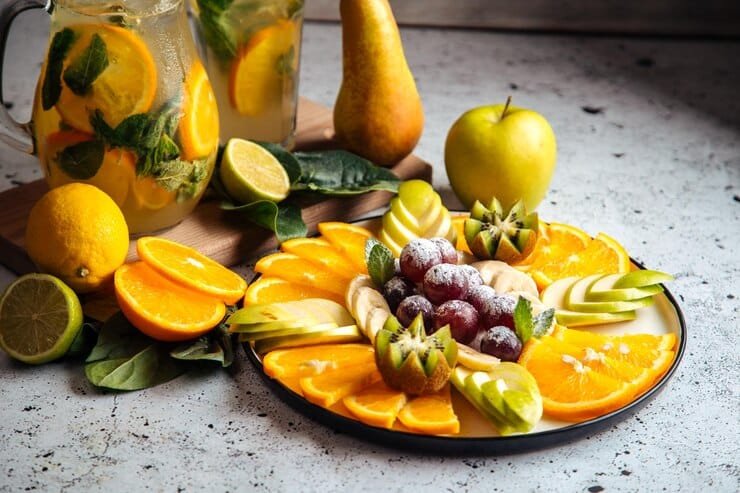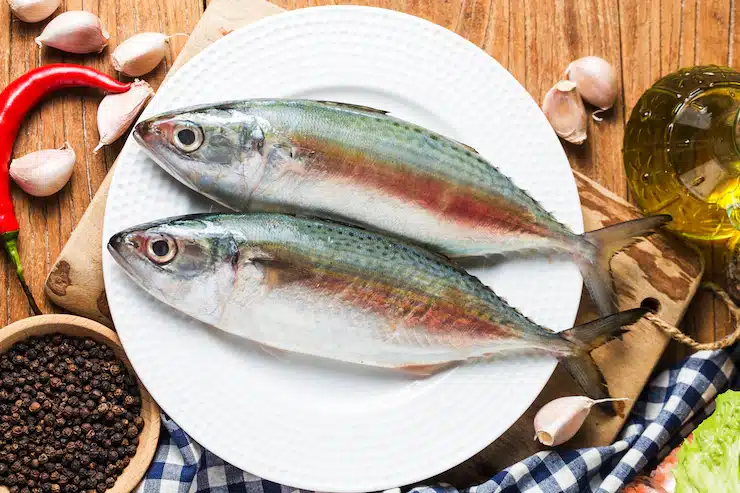Diet is key to maintaining overall health, including eye health and vision. Eating certain foods can provide your body with essential vitamins and minerals needed to protect and strengthen eyesight – from dark leafy greens to colorful fruits and veggies there are plenty of delicious and healthy choices available that may improve eyesight. Here are six foods you should consume for optimal eye health and vision.
1) Leafy Greens
Leafy greens are among the top foods to eat to support eye health, packed with vital vitamins, minerals, and antioxidants that benefit your eyesight. Spinach, broccoli and kale are popular leafy greens to add into your diet easily – you can easily make salads using these nutritious leaves!

Enjoy leafy greens daily by including them in sandwiches or steaming and serving with rice as part of your diet. Eating leafy greens provides your eyes with ample amounts of lutein and zeaxanthin – two compounds known to protect against eye disease and degeneration – thus significantly decreasing your risk for age-related macular degeneration and cataracts. Eating at least one serving each day of these greens can significantly lower this risk factor.
2) Carrots
Carrots are another nutritional veggie that’s good for your eyes. Rich in carotenoids and anti-oxidants, carrots contain carotenoids to protect against degenerative eye conditions like macular degeneration and cataracts. Research shows that eating five to six servings of carrots weekly could decrease this risk by 42%! Enjoy them raw, roasted or in soups.

Carrots make an irresistibly delicious side dish when grilled or roasted in the oven, but take caution not to go overboard as eating too many carrots may increase your risk of hypercarotenemia – an overabundance of carotenoid in the tissues, leading to orange discolorations of skin, eyelids and lips as well as liver abnormalities – so stick to one or two carrots per day to protect eye health and avoid hypercarotenemia altogether.
3) Citrus Fruits
Oranges, tangerines and other citrus fruits contain many powerful antioxidants and vitamin C-rich nutrients that protect eyes from damage caused by oxidative stress. Furthermore, their rich lutein content has been shown to decrease age-related macular degeneration and cataract risk factors. You can enjoy fresh citrus in an amazing salad or add it to oatmeal or yogurt breakfast bowls to make a nutritious start of the day even healthier!

If citrus fruits don’t appeal to you, drink freshly-squeezed orange juice to get all the eye-protective benefits without extra added sugars – choose 100% orange juice as this contains no additional sweeteners. Or for added peace of mind try a natural sweetened brand like Simply Orange which offers no artificial sweeteners at all.
4) Nuts And Seeds
Nuts and seeds contain essential eye health nutrients, such as magnesium and vitamin E. These essential elements can help combat oxidative stress while increasing blood flow to the eyes, as well as providing essential protein. Nuts and seeds make an ideal snack to improve eyesight whether enjoyed raw, roasted, with yogurt, or combined into an irresistibly tasty trail mix alongside dried fruits!

Nuts and Seeds For optimal nut and seed consumption, select organic options low in sodium. There is a wide array of nuts and seeds available; among the most nutritious are almonds, walnuts, peanuts, cashews, pistachios, pumpkin seeds, sunflower seeds and sesame seeds – providing a rich variety of essential nutrition! When selecting nuts and seeds as snacks or meal replacements it is wise to do so in moderation due to high calorie counts; consume in moderation!
5) Fish
Fish is an effective way to combat oxidative damage and improve blood flow to the eyes, providing essential protection and improved blood flow. Salmon, cod and tuna contain omega-3 fatty acids which have been proven to protect against macular degeneration and diabetic retinopathy. For optimal health benefits it’s recommended that pregnant women consume fish three times weekly according to Environmental Working Group recommendations; pregnant women can eat three meals of fish per week before giving birth in order to lower the risk of their child being born with an eye or neurological defect.

EWG advises pregnant women to avoid swordfish and shark due to high mercury levels that could harm fetal development. Instead, salmon and cod contain less mercury compared to swordfish and shark. Safe alternatives include herring, lake trout, sardines, and trout.
6) Eggs
Eggs are another great source of omega-3 fatty acids that protect against eye disorders. Aim to consume one to two eggs weekly in order to reap all their fatty acid benefits, whether that means enjoying them scrambled, hard boiled or in an omelette or scrambled form – low-carb followers can adapt these recipes as necessary; or add eggs into oatmeal, warm pancakes or delicious oatmeal topped off with eggs as part of a breakfast dish – just remember to watch your cholesterol intake closely!

While eggs provide essential nutrition to your body, they also contain high amounts of cholesterol which may increase your risk for heart disease. If this is something that concerns you, try swapping out yolks for egg whites so as to enjoy eggs without as much of its saturated fat content.
Also Read- 10 Foods That Are Beneficial for Eye Health
Conclusion
Diet is essential to overall health. There are six foods you should include in your diet in order to protect your eyes and keep vision sharp, these being dark leafy greens, carrots, citrus fruits, nuts and seeds, fish and eggs. All these contain vital vitamins, minerals and antioxidants which protect from damage caused by oxidative stress while simultaneously increasing blood flow to the eyes.
